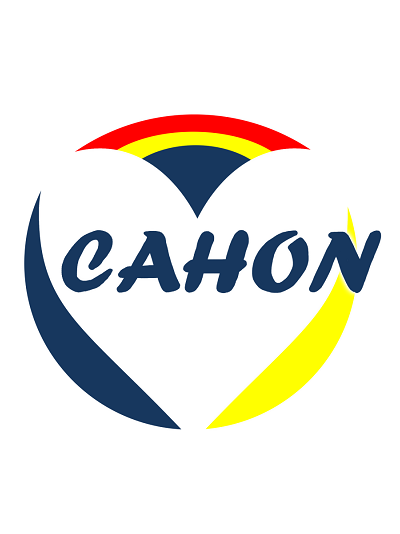从多能干细胞衍生的工程化CRO-CD7 CAR-NK细胞避免了自相残杀并有效抑制人类t细胞恶性肿瘤
IF 29.5
1区 医学
Q1 HEMATOLOGY
引用次数: 0
摘要
t细胞恶性肿瘤是高度侵袭性的血液系统肿瘤,有效的治疗选择有限。靶向CD7的CAR-NK细胞疗法已成为治疗t细胞恶性肿瘤的一种有前途的方法。然而,由于CD7在恶性细胞和正常NK细胞上的表达,传统的CAR-NK细胞治疗面临着细胞自相残杀的挑战。此外,将car导入人组织来源的NK细胞具有异质性、低转导效率和高制造成本。通过敲除CD7基因并引入CD7 CAR表达盒,对人多能干细胞(hPSCs)进行基因修饰,生成CD7 KO-CD7 CAR-hPSCs。这些修饰的hPSCs随后通过有效的类器官诱导方法分化为CD7 KO-CD7 CAR-iNK细胞。观察CD7 KO-CD7 CAR-iNK细胞对CD7阳性肿瘤细胞的细胞毒性。此外,我们在CD7 KO-CD7 CAR-hPSCs中过表达CXCR4基因,并衍生出表达CXCR4的CD7 KO-CD7 CAR-iNK (CRO-CD7 CAR-iNK)细胞。我们跟踪了CRO-CD7 CAR-iNK细胞在体内的动态变化,并利用人类t细胞急性淋巴细胞白血病(T-ALL)异种移植模型评估了它们的治疗效果。来源于CD7 KO-CD7 CAR-hPSCs的CD7 KO-CD7 CAR-iNK细胞有效地避免了自相残杀,表现出正常的扩增,并对CD7+ t细胞肿瘤细胞系和原代T-ALL细胞表现出有效的特异性抗肿瘤活性。在CRO-CD7 CAR-iNK细胞中过表达CXCR4提高了它们的归巢能力,延长了它们在体内的持久性。CRO-CD7 CAR-iNK细胞能显著抑制T-ALL荷瘤小鼠的肿瘤生长,延长其生存期。我们的研究为大规模产生具有强大抗肿瘤作用的抗兄弟杀虫CD7 CAR-iNK细胞提供了一种可靠的策略,为治疗t细胞恶性肿瘤提供了一种有前景的细胞产品。本文章由计算机程序翻译,如有差异,请以英文原文为准。
Engineered CRO-CD7 CAR-NK cells derived from pluripotent stem cells avoid fratricide and efficiently suppress human T-cell malignancies
T-cell malignancies are highly aggressive hematological tumors with limited effective treatment options. CAR-NK cell therapy targeting CD7 has emerged as a promising approach for treating T-cell malignancies. However, conventional CAR-NK cell therapy faces the challenges of cell fratricide due to CD7 expression on both malignant cells and normal NK cells. Additionally, engineering CARs into human tissue-derived NK cells demonstrates heterogeneity, low transduction efficiency, and high manufacturing costs. The human pluripotent stem cells (hPSCs) were genetically modified by knocking out the CD7 gene and introducing the CD7 CAR expression cassette to generate CD7 KO-CD7 CAR-hPSCs. These modified hPSCs were subsequently differentiated into CD7 KO-CD7 CAR-iNK cells using an efficient organoid induction method. The cytotoxicity of CD7 KO-CD7 CAR-iNK cells against CD7+ tumor cells was evaluated. Furthermore, we overexpressed the CXCR4 gene in CD7 KO-CD7 CAR-hPSCs and derived CXCR4-expressing CD7 KO-CD7 CAR-iNK (CRO-CD7 CAR-iNK) cells. The dynamics of CRO-CD7 CAR-iNK cells in vivo were tracked, and their therapeutic efficacy was assessed using human T-cell acute lymphoblastic leukemia (T-ALL) xenograft models. The CD7 KO-CD7 CAR-iNK cells derived from CD7 KO-CD7 CAR-hPSCs effectively avoided fratricide, demonstrated normal expansion, and exhibited potent and specific anti-tumor activity against CD7+ T-cell tumor cell lines and primary T-ALL cells. CXCR4 overexpression in CRO-CD7 CAR-iNK cells improved their homing capacity and extended their persistence in vivo. The CRO-CD7 CAR-iNK cells significantly suppressed tumor growth and prolonged the survival of T-ALL tumor-bearing mice. Our study provides a reliable strategy for the large-scale generation of fratricide-resistant CD7 CAR-iNK cells with robust anti-tumor effects from hPSCs, offering a promising cell product to treat T-cell malignancies.
求助全文
通过发布文献求助,成功后即可免费获取论文全文。
去求助
来源期刊
CiteScore
48.10
自引率
2.10%
发文量
169
审稿时长
6-12 weeks
期刊介绍:
The Journal of Hematology & Oncology, an open-access journal, publishes high-quality research covering all aspects of hematology and oncology, including reviews and research highlights on "hot topics" by leading experts.
Given the close relationship and rapid evolution of hematology and oncology, the journal aims to meet the demand for a dedicated platform for publishing discoveries from both fields. It serves as an international platform for sharing laboratory and clinical findings among laboratory scientists, physician scientists, hematologists, and oncologists in an open-access format. With a rapid turnaround time from submission to publication, the journal facilitates real-time sharing of knowledge and new successes.

 求助内容:
求助内容: 应助结果提醒方式:
应助结果提醒方式:


